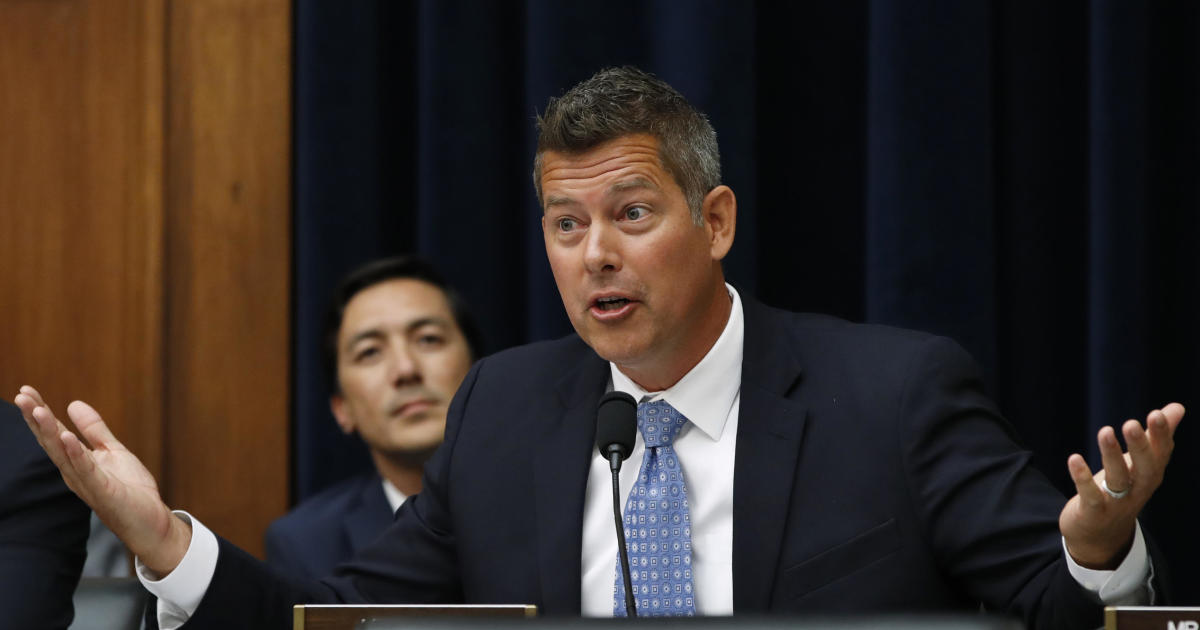President-elect Donald Trump made a significant announcement on Monday, revealing his pick for transportation secretary as former Wisconsin Rep. Sean Duffy. This nomination is part of Trump’s ongoing process of selecting members for his Cabinet as he prepares to take office.
Duffy, a former reality TV star and prominent defender of Trump on cable news, brings a wealth of experience to the role. He served in the House for nearly nine years, where he was a member of the Financial Services Committee and chairman of the subcommittee on insurance and housing. After leaving Congress in 2019, Duffy went on to co-host “The Bottom Line” on Fox Business.
In his announcement, Trump highlighted Duffy’s connection to Fox News, noting that he is married to Fox News host Rachel Campos-Duffy. Trump described Campos-Duffy as a “STAR on Fox News,” emphasizing the strong ties between the nominee and the media outlet.
This nomination marks the second time Trump has selected a Fox-affiliated television host for his Cabinet. Last week, he announced his choice of Fox News host Pete Hegseth to serve as his defense secretary, underscoring the close relationship between the Trump administration and the conservative media network.
Duffy’s background as a former lumberjack athlete and frequent Fox News contributor adds a unique perspective to his new role. He first gained national attention during his campaign for Congress, where he showcased his lumberjack roots in campaign ads that featured him chopping trees while wearing a red flannel shirt. This unconventional approach helped him stand out and win election in 2010 as part of the tea party wave.
Despite his reality TV background, Duffy also has a strong legal background, having worked as a special prosecutor and Ashland County district attorney. His experience in both the media and legal fields will be valuable as he takes on the role of transportation secretary and oversees the nation’s complex transportation system.
The Department of Transportation plays a crucial role in overseeing various aspects of the nation’s transportation infrastructure, including pipelines, railroads, cars, trucks, airlines, and mass transit systems. As transportation secretary, Duffy will be responsible for maintaining and rebuilding the nation’s infrastructure, focusing on safety, efficiency, and innovation.
One of the key challenges facing Duffy in his new role is the rapidly evolving nature of transportation technology. With the introduction of autonomous vehicles and electric vehicles, the transportation landscape is undergoing significant changes. Traffic deaths remain a concern, and new technologies are being developed to improve road safety.
The Transportation Department also includes agencies like the National Highway Traffic Safety Administration, which regulates automakers, and the Federal Aviation Administration, which oversees the airline industry. Collaboration with industry stakeholders will be essential as Duffy navigates these complex issues and works to improve the nation’s transportation systems.
Industry officials, such as Nicholas Calio of Airlines for America, have expressed support for Duffy’s nomination, citing his track record for getting things done. This endorsement underscores the importance of strong leadership in the transportation sector, especially as the industry faces various challenges and opportunities.
Trump’s statement on Duffy’s nomination emphasizes the administration’s priorities of excellence, competence, competitiveness, and beauty in rebuilding America’s infrastructure. Trump has previously criticized electric vehicles and promoted a focus on traditional forms of transportation, but recent endorsements from industry leaders like Elon Musk may signal a shift in his approach.
As Duffy prepares to take on his new role as transportation secretary, he will need to address a range of issues, from road safety to infrastructure development. With his background in both politics and media, Duffy brings a unique perspective to the role and will play a crucial role in shaping the future of transportation in the United States.









